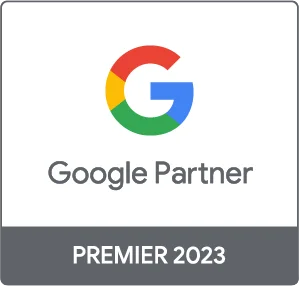
Optimising your website for local search is essential for any local business looking to drive growth, and market share and beat the competition. Local search is one of the most powerful tools to gain new customers and appearing high in the search engines for terms directly related to the services your business offers is key to driving this growth. However, many businesses fail to optimise their local search presence, resulting in missed opportunities and lost leads.
Many businesses that come to Click Click Media have failed to optimise their local search presence and in some cases, this has meant missing out on hundreds of qualified leads through their website with zero advertising cost.
So what are the most important factors when it comes to winning on local search? In this article below find the top 5 quick tips to optimise your website for local search.
Optimise your Google My Business page
Google My Business (GMB) is a free listing service provided by Google that allows businesses to manage their online presence across Google, including local packs in Google Search and Google Maps. By verifying and editing your business information, you can help customers find your business and tell them more about what you offer. Some of the important information to include on your GMB page is your business name, address, phone number, hours of operation, and photos of your business and products or services. This is a key to helping you with your local search ranking.
To optimise your GMB page for local search:
- Use Google’s GMB dashboard to ensure all of your business information is correct and up to date
- Use relevant keywords in your business description
- Add photos and videos to showcase your products or services
- Encourage customers to leave reviews on your GMB page
Use local search keywords in your website’s content and meta tags
Using local keywords in your website’s content and meta tags can help search engines understand the location and relevance of your business. These keywords should include your city, state, and any relevant suburbs or landmarks. For example, if you run a pizza restaurant in Bella Vista, you might use keywords like “Bella Vista pizza,” “Norwest pizza,” or “Hills District pizza.” Creating local service pages to target each specific area greatly increases your local search presence.
To optimise your website’s content for local search:
- Conduct keyword research to identify the most relevant keywords for your business and location
- Incorporate those keywords into your website’s content, such as page titles, headings, and body text
- Use meta tags, such as the title tag and meta description, to provide additional information about your website to search engines
- Create local service pages to target specific areas and boost your local search presence
Get listed in online directories and review sites
Online directories and review sites, such as Yelp, YellowPages and Tripadvisor, can help your business get found by customers in your local area. By creating profiles for your business on these sites and encouraging your customers to leave reviews, you can build up a reputation as a trusted and reputable business in your community. Also, optimise your social media accounts so that followers can leave reviews.
To get your business listed in local directories:
- Use google search operators like “site:hotfrog.com [Your city] [Your industry]” to find local directories
- Create profiles for your business on popular directories and review sites like Yelp, YellowPages, and TripAdvisor
- Encourage customers to leave reviews on your business profile to build up a reputation as a trusted and reputable business
- Optimise your social media account to encourage followers to leave reviews
Build local backlinks
Links from other local business websites or other local blogs and websites can help boost your website’s visibility in search engines. You can start by finding local business directories and listings websites and adding your business to them. Another way is to collaborate with local businesses, whether through sponsored content or in-person networking.
To build local backlinks for your website:
- Research local business directories and listings websites and add your business to them
- Collaborate with other local businesses through sponsored content or in-person networking
- Reach out to local bloggers and websites in your industry and ask if they would be willing to link back to your website
- Use online tools like Ahrefs or Majestic to monitor and analyze the backlinks to your website
Optimise your website for mobile searches
A majority of people use their smartphones to search for local businesses, so it is crucial that your website is optimised for mobile devices so that it is easy to navigate and loads quickly on a small screen. Google also uses mobile-friendliness as a ranking factor, so a mobile-optimised website can help improve your search engine ranking as well.
To optimise your website for mobile searches:
- Use tools like Google’s Mobile-Friendly Test or Responsive Web Design Checker to identify any issues with your website’s mobile optimisation
- Ensure that all of your website’s pages are easily navigable on a small screen
- Optimise all images and videos on your website to load quickly on mobile devices
- Test your website on multiple mobile devices to ensure that it looks and functions correctly across different screen sizes and resolutions
Conclusion
In conclusion, by following these local SEO optimisation tactics, you can help your business get found by local customers in search engines through organic results and improve your overall online presence in your local area. Remember that optimisation is an ongoing process and you need to keep monitoring and updating your website and online presence to stay ahead of the competition.
Additional resources
For more information on optimising your business for local search check out these great online articles here:
- SEM rush on how to get top local positions on all devices
- Hubspots guide to local SEO
- Wordstream with 11 tips for local SEO
- Search Engine Journal’s Local SEO section
To get expert advice on your local SEO optimisation project please don’t hesitate to contact us!

 Google Ads
Google Ads Search Engine Optimisation
Search Engine Optimisation Website Development
Website Development Landing Pages
Landing Pages Digital Marketing Strategy
Digital Marketing Strategy Wordpress Development
Wordpress Development Facebook Advertising
Facebook Advertising Conversion Rate Optimisation
Conversion Rate Optimisation Design
Design Ecommerce
Ecommerce















